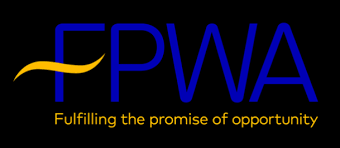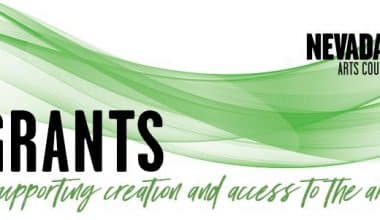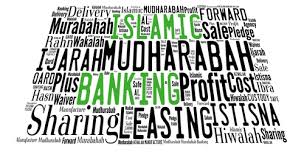A non-conforming loan is a loan that is issued to a borrower that does not meet the conventional criteria for loan issuance, such as an excessive loan-to-value ratio, poor credit quality, and no security.
Non-Conforming Loan
Any loan that is not partially guaranteed by a department or agency of the government is considered a non-conforming loan. Since they do not adhere to government agency regulations, these loans are dangerous. So, lenders can’t sell them back to companies like Freddie Mac or Fannie Mae. The interest rate for this loan is higher because it is riskier. It is therefore advised to exhaust all conventional means before submitting an application for this loan.
Moreso, a loan that doesn’t match the funding requirements of the bank is also referred to as non-conforming. The loan amount exceeds the conforming repayment capacity for a number of reasons, such as insufficient credit, unconventional use of the money, or the collateral used as security. Non-conforming loans are the best option for people with bad credit who still want to buy a home or refinance. They are loans that fall short of all the requirements the bank needs to fund them.
Non-Conforming Overview
A non-conforming loan is one that is made available to borrowers who don’t meet the standard lending requirements established by banks and other significant lenders. For instance, they might be of interest if you have a bad credit history, a history of bankruptcy, or trouble verifying your income because you work for yourself.
Non-conforming loans are common with hard-money lenders. Because they’re riskier, their interest rates are higher. A hard money lender may charge 8% interest, while the average fixed mortgage rate was 4% in early 2019. The debtor can get funding, which is helpful.
Hard money providers process loans far faster than normal lenders, so borrowers can get money quickly. In the case of a housing market slump, a borrower with a non-conforming loan may find himself “upside down” in his mortgage, owing more than the home’s equity value and unable to sell it for enough to pay off his mortgage.
Any house loan that doesn’t normally meet the regular lending requirements of the major banks is also referred to as non-conforming. It is the reverse of what is referred to as a “prime” mortgage. Most non-conforming loans have easier requirements to meet, which makes them great for people who need more flexible ways to get loans.
FHA, VA, and USDA loans are a few non-conforming loans that have more lenient financial standards. The Federal Housing Administration (FHA), the Department of Veterans Affairs (VA), and the United States Department of Agriculture (USDA), which each back one of these loans, each have their own requirements for applicants, such as maximum permissible incomes or geographic restrictions.
Conforming vs Non-Conforming Loan
- Conventional loans are all conforming loans, however not all conforming loans are conventional.
- All conventional jumbo loans are non-conforming.
- Loans that are non-conforming do not satisfy Freddie Mac or Fannie Mae’s purchase criteria.
- Because conforming loans carry less risk, the mortgage lender may occasionally need less documentation.
- Conventionally, interest rates for conforming loans are lower.
- Loans for non-conforming borrowers have laxer credit score requirements.
- Contrary to conforming loans, non-conforming loans let borrowers have negative marks on their credit history (such as bankruptcies, etc.).
Both conforming and non-conforming loans have their benefits and drawbacks.
Conforming Loan Pros
- There are numerous conforming loans available. Nearly all lenders provide them.
- They frequently have lower fees and interest rates for mortgages. particularly in contrast to nonconforming alternatives.
- The prerequisites are obvious. Since most lenders adhere to Fannie and Freddie’s rules, it’s simple to determine whether you qualify.
Conforming Loan Cons
- Overborrowing is not permitted. A conforming loan will not be available to you if you want to purchase a property that is more expensive.
- If you have bad credit or a high DTI ratio, you won’t be eligible. A conforming loan might not be an option for you if you are not a well-qualified borrower.
Non-Conforming Loan Pros
- Lenders are more adaptable. Even if you don’t fulfill the requirements of Freddie Mac and Fannie Mae, you can still be eligible for a nonconforming loan. To explore your alternatives, look for lenders who work with consumers with bad credit, first-time home purchasers, or jumbo loan specialists.
- You are able to borrow more money. You can borrow money to purchase a more expensive home if you are eligible for a jumbo loan that exceeds Fannie Mae and Freddie Mac limits.
Non-Conforming Loan Cons
- Fees and interest rates are frequently greater than those on conforming loans. With a non-conforming loan, the lender may assume more risk and charge a higher interest rate.
- Some nonconforming loans may be more difficult to obtain. Jumbo loans might be trickier to get than conforming loans, in contrast to government-backed loans, which are frequently simpler to get. To qualify for a jumbo loan, lenders typically want a larger down payment and better credit.
Conventional Non-Conforming Loan
Conventional non-conforming loans have a fixed or adjustable interest rate. The interest rates on fixed-rate mortgages won’t change. Mortgages with adjustable rates frequently have lower interest rates and introductory monthly payments. The interest rate will, however, go up if your homeowners’ insurance or property taxes change.
A conventional non-conforming loan typically requires a smaller down payment. There is no requirement for a down payment if you are eligible for a USDA or VA loan. You’re in luck if you want to purchase a pricey property because jumbo loans are available to you. Compared to conforming loans, this kind of conventional non-conforming loan offers larger loan maximums.
You immediately have more options for the kind of property you can buy because conventional non-conforming loans are less restrictive regarding loan terms, down payments, and maximums. Luck can be on your side if you have a poor credit score or unfavorable notes on your report. Conventional non-conforming loans are subject to fewer restrictions. Even if you have bankruptcy on your record, you can still be approved. But bear in mind that the interest rates on these loans are typically higher.
Conforming Loan 2022
The conforming loan 2022 was recently published by the Federal Housing Finance Agency (FHFA), and no one was surprised to see that loans had climbed dramatically to $647,200 in most regions of the country. The highest year-over-year surge in loan limits in recent memory is an increase of 18%. This might be a huge help to transferees who need more purchasing power and are eager to migrate.
The Federal Housing Finance Agency (FHFA) establishes new baseline loan limitations every year for a variety of home loan types to reflect the national average for home prices. The majority of loans in the United States are conventional loans, sometimes referred to as conforming loans, which are insured by Fannie Mae and Freddie Mac. As you can expect, some homebuyers might ask for a loan that is more than the conforming restrictions. They might be eligible for a jumbo loan, a type of non-conforming loan, in certain circumstances.
An FHA government loan is another popular sort of mortgage (Federal Housing Administration). The new conforming loan will have a maximum amount of $647,200 in most of the United States and $970,800 in high-cost areas beginning on January 1, 2022. Furthermore, you don’t have to wait until 2022 to benefit. Today, a lot of lenders already provide bigger loan limits.
Why Would a Lender Prefer to Issue Only Conforming Loans?
Conforming loans are the ones that lenders prefer to give out because they can be bundled together and sold again on the secondary mortgage market. Compared to other mortgage options, conforming loans often have lower interest rates.
Do Nonconforming Loans Have Higher Interest Rates?
Nonconforming mortgages frequently have higher interest rates than conforming loans. Nonconforming loans come in a lot more shapes and sizes and have a lot more features than conforming loans. Although this isn’t always the case.
What Are the Three Types of Conventional Conforming Loans?
The following three types of conventional conforming loans are:
- Non-Conforming Conventional Loan.
- Fixed-Rate Conventional Loans.
- Adjustable-Rate Conventional Loans.
What Is the Meaning of Non-Conforming?
Non-conforming means not in conformity with the accepted norms, standards, or conventions. Not complying (as with contract requirements or specifications or a law).
Conclusion
Generally, non-conforming loans are the best option for people who want to buy property despite having a lower credit score but are unable to meet the requirements for conforming loans. It is crucial to be reminded once more that nonconforming loans frequently charge higher interest rates over time.
Loans that do not adhere to conventional lending standards or those of a traditional lender or bank are considered non-conforming. Alternative lending sources will need to be used to fund loans that do not fit these criteria. Anyone who does not fulfill the credit requirements of traditional lenders can obtain a mortgage thanks to non-conforming home loans.
Non-conforming loans are also a fantastic method to rebuild your credit, and if you can show a solid track record of on-time payments, some lenders will let you refinance into a more conventional house loan in the future.
Non-Conforming Loan FAQs
What Is the Most Common Loan Type in America?
The most common loan type in America is the fixed-rate mortgage, also known as a conventional loan.
Is a Conforming Loan Better than a Conventional Loan?
If you have strong or excellent credit, a conventional loan is frequently better when your mortgage interest rate and PMI fees will decrease.
{
“@context”: “https://schema.org”,
“@type”: “FAQPage”,
“mainEntity”: [
{
“@type”: “Question”,
“name”: “What Is the Most Common Loan Type in America?”,
“acceptedAnswer”: {
“@type”: “Answer”,
“text”: “
The most common loan type in America is the fixed-rate mortgage, also known as a conventional loan.
“
}
}
, {
“@type”: “Question”,
“name”: “Is a Conforming Loan Better than a Conventional Loan?”,
“acceptedAnswer”: {
“@type”: “Answer”,
“text”: “
If you have strong or excellent credit, a conventional loan is frequently better when your mortgage interest rate and PMI fees will decrease.
“
}
}
]
}






